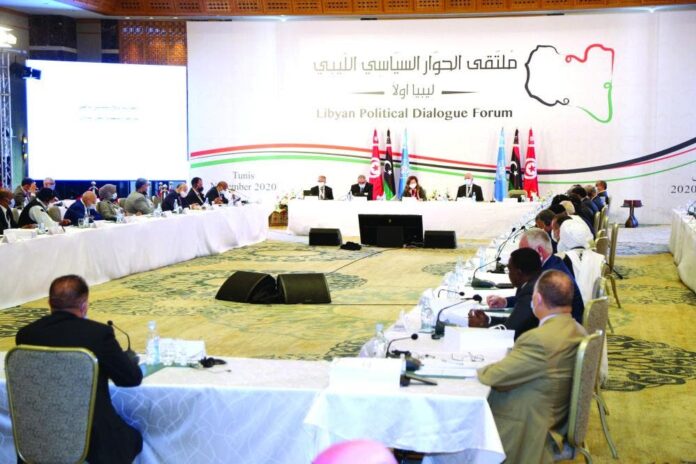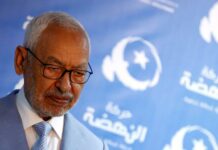The Libyan Political Dialogue Forum will resume holding its meetings organized by the United Nations in a virtual session today, Wednesday, August 11, 2021, to discuss the constitutional rule regarding holding elections in December 2021.
The mission indicated in a statement on its website that the meeting will be devoted to examining the results of the consensus committee and the subsequent steps.
Likewise, the session is scheduled to witness voting on one of the 4 proposals of the consensus committee on the constitutional basis for elections.
For his part, the Special Envoy of the Secretary-General of the United Nations, Jan Kubis, stressed the need for none of these proposals to prejudice the holding of elections within the time frame set by the road map.
Kubis stressed that the purpose of this meeting is to listen to a presentation of the four proposals presented by the consensus committee and to consider the next steps that will bring you closer to reaching an agreement regarding the holding of the Libyan elections within their specified deadlines, continuing, “I hope you will allow me to remind you that only December 24 remains until December 24.” Only 134 days.
Last Thursday, August 5, 2021, the mission announced that it had invited members of the forum for a virtual meeting, to “consider the results of the consensus committee and the subsequent steps,” after the committee concluded its deliberations that took place on July 16, 27 and 30.
The four proposals
Member of the Political Dialogue Forum, Abdul Razzaq Al-Aradi, revealed in previous press statements about these four proposals and what they contained, explaining that all the proposals that were presented were built on the constitutional base reached by the Legal Committee.
As for the second proposal, it included calling for simultaneous presidential and parliamentary elections with conditions; It prohibits the candidacy of military personnel, dual nationals, and anyone wanted for war crimes, crimes related to human rights violations, or corruption cases.
The third proposal carried a call for holding two-chamber legislative elections on the basis of the constitutional rule, if the referendum on the amended draft constitution did not take place within a specified time. It also called for holding the election of the president after the adoption of the constitution.
As for the fourth proposal, it also called for holding two-chamber legislative elections, a House of Representatives and a Senate, and the members of the two chambers elect the head of state in a joint session.
We point out that the Consensus Committee failed to integrate these four proposals during its previous sessions, before the members of the forum went to vote on the four proposals to choose one of them and be approved by them as a constitutional base for the upcoming elections.
We recall that the Libyan parties elected a new, unified executive authority under the auspices of the United Nations, during a meeting held in Geneva in early February.
The new political authority, represented by a national unity government headed by Abdel Hamid al-Dabaiba and a presidential council led by Muhammad al-Manfi, is mandated under a UN-sponsored roadmap to end the political division in the country, lead the transitional phase, and prepare for presidential and legislative elections on December 24.
Rifi-JDD











